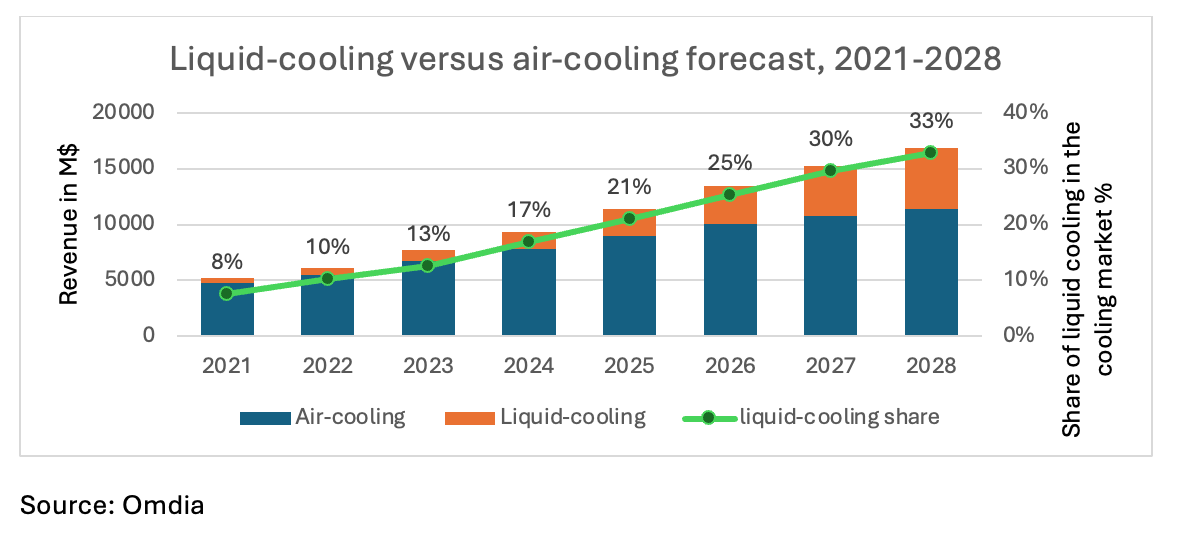According to Omdia's latest research, the data center thermal management market has made a breakthrough and soared to a staggering $7.67 billion, and this strong growth momentum is likely to continue through 2028 at a CAGR of 18.4%. This surge is primarily driven by strong AI demand and innovation in high-density infrastructure.
With the rise in AI, the demand for liquid cooling has risen dramatically, with key trends including the adoption of back-door heat exchangers (RDHx) combined with 1-P direct chip cooling, which has seen a staggering 65% year-over-year growth. In addition, there is now a strategic convergence of air and liquid cooling technologies to create balanced and efficient thermal management.
In the data center cooling market, liquid cooling technology has become a technology trend that has attracted much attention. Compared with traditional air cooling technology, liquid cooling technology has higher heat dissipation efficiency and lower energy consumption, which can better meet the heat dissipation requirements of high-density data centers. At the same time, with the popularization of intelligent computing, the demand for liquid cooling has also risen sharply. Currently, the main technology trends include the combination of back-door heat exchangers (RDHx) with single direct chip cooling technology, as well as the combination with heat recovery applications. The application of these technologies can not only improve the heat dissipation efficiency of data centers, but also realize the efficient use and recovery of energy.

Figure: Comparison of liquid cooling and air cooling market forecasts (Source: Omdia)
In terms of market competition, some major vendors such as Vertiv, Johnson Controls, and Stulz have maintained their leading positions in the market due to their deep accumulation and technological advantages in the field of data center cooling. However, with the popularity of liquid cooling technology and the intensification of market competition, new suppliers have also entered the market, bringing new vitality and innovation to the market. Among them, CoolIT, a supplier of direct chip cooling systems, is still the leader in the liquid cooling market, while Sugon, a leader in immersion cooling, and Lenovo, a server manufacturer, also occupy a place in the market.
Looking ahead, the data center cooling market will continue to grow at a rapid pace. With the continuous development and application of artificial intelligence technology, the demand for cooling technology in data centers will continue to grow. At the same time, the innovation of high-density infrastructure will also bring more development opportunities to the data center cooling market. In this process, liquid cooling technology will become one of the important trends in the market, providing more efficient and environmentally friendly cooling solutions for data centers.






